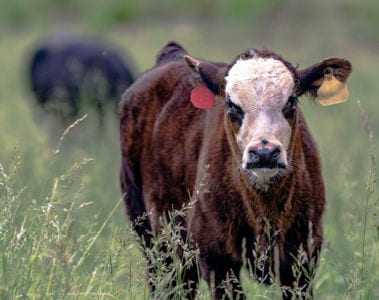
Mycotoxins: The Invisible Profit Killer, Part 3
17 Oct 2022
Evaluating the negative effects associated with mycotoxins on feedlot performance and health needs further investigation. In general, it is widely believed that feedlot animals are more resistant to development of mycotoxicosis compared to other species due to natural deactivation properties in the rumen. Research in both dairy and beef have shown that while ruminants are able to consume a higher concentration of mycotoxins compared to other livestock species such as swine and poultry, cattle are not any less susceptible to immunotoxic and hepatotoxic effects from toxigenic compounds.
Mycotoxicosis can show up in livestock as performance losses from subclinical effects on immune and digestive health, feed intake, and growth and especially in animals undergoing increased physiological stress. It is also important to not only evaluate the diet for the presence, type and concentration of mycotoxins but also to keep in mind that the duration of exposure, stress load on the animal and the presence of more than one mycotoxin in the diet can have an effect on the negative impact on the animal.
Duringer et al., 2020 evaluated the effects of deoxynivalenol (DON) and fumonisins (FUM) in combination on performance and immune and hepatic function in feedlot beef steers fed a high-starch diet. The concentrations of DON and FUM were 1.7 mg/kg and 3.5 mg/kg, respectively, which were reported as concentrations far below the current recommended safety limits set by the United States Food and Drug Administration for animal feed (60 mg/kg FUM and 10 mg/kg DON for ruminants greater than three months old being raised for human consumption) and similar to levels typically seen in a commercial finishing operation in the US. Results from the study reported a reduction in body weight gain of 35.2 lb over the 5-week feeding period between the FUM and DON contaminated diet compared to the noncontaminated control. Interestingly, the researchers evaluated physiological variables that showed minor perturbations in cattle fed contaminated diets for three weeks were able to return to levels similar to controls after a two-week washout period, indicating the animals able to return to a naïve state for most parameters except body weight.
When considering how mycotoxin contamination can potentially impact animal health and performance, it is important to consider the type of mycotoxin present since different mycotoxins have chemical structures and toxic components that vary from mode of action and impacts on different species.
More recently, Wang et al., 2023 evaluated the effects of supplementing a kaolin and yeast-based feed additive on the performance of feedlot cattle. The high-concentrate based finishing diet had medium to low mycotoxin contamination evaluated in the diet. However, cattle supplemented the feed additive showed improved feed conversion, improved fecal IGA concentration, and increased lipopolysaccharide binding protein suggesting improved nutrient absorption and potentially better gut health. Since there was low to medium mycotoxin contamination in the diets for this trial, the consideration for the improvement in performance due to properly mitigating lipopolysaccharides or endotoxins is valid. Endotoxins are released from gram negative bacteria in cattle fed highly fermentable diets and are known to cause a strong inflammatory response and can cause underlying health impacts and performance losses in feedlot cattle especially when other stressors are present.
To prevent health and performance losses, it is important to analyze diet samples for mycotoxins contamination to better understand what type and contamination levels are present. If you are interested in submitting a sample for analysis, please contact a dsm-firmenich representative. Also, be sure to follow our monthly mycotoxin update for information on mycotoxin occurrence and contamination by geographical region as we begin 2023 harvest of new crop corn.
For more information on mycotoxins, analytical services or product related questions please contact a dsm-firmenich representative.
18 September 2023

17 Oct 2022


16 Sep 2024
We detected that you are visitng this page from United States. Therefore we are redirecting you to the localized version.